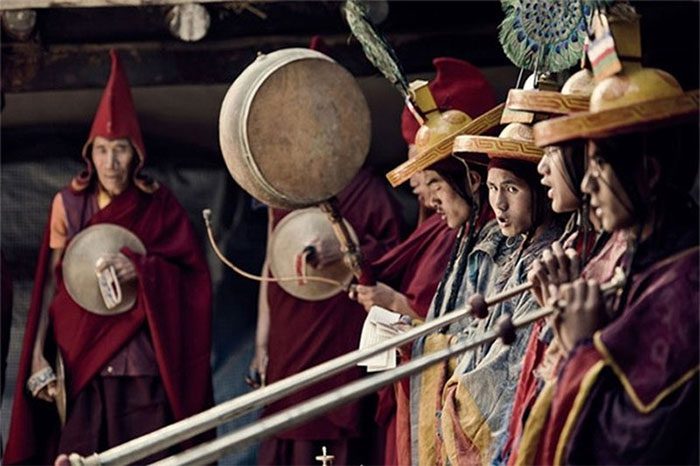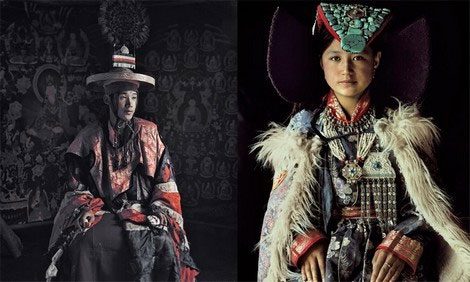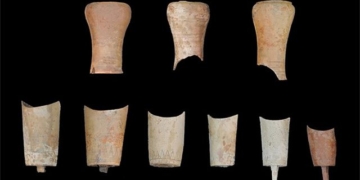The Mustang Tribe in Tibet has a peculiar custom where brothers in a family share a wife. To this day, some Mustang families continue to uphold this tradition.
The Mustang Tribe consists of 7,000 people scattered across a vast area of 2,000 km2 in the Kali Gandaki River valley in the majestic Tibetan plateau. They refer to themselves as “The Land of the Lo People.”
Mustang (meaning “fertile plain”) is located on a windy plateau between Tibet and northwestern Nepal, making it one of the most remote and least visited places in the world. Although there is a strong connection to Tibetan religion, culture, and history, this land is, in fact, owned by Nepal.

The Mustang Tribe continues the custom of ‘one wife, multiple husbands’.
Here, there exists a strange custom where brothers in a family take a wife together. This tradition stems from the Mustang people’s reverence for ancient Tibetan customs. Due to the mountainous terrain in Ladakh and the scarcity of individually owned land, the practice of “polyandry”, where one woman can have multiple husbands, is maintained. In some families, multiple brothers share a single wife. This way, when the father passes away, the brothers can continue to live together as a family, and the family’s land does not need to be divided. Currently, some Mustang families still uphold this tradition.
In recent decades, with the advancement of modern society and increased access to the civilized world, this custom has gradually diminished. However, it is precisely these “unique” practices that attract a large number of tourists and researchers to the Mustang village. This influx has provided significant income during the summer months. Since 1992, this area has opened its doors to tourists, leading to a booming tourism industry that contributes to the local economy.

Mustang girl in traditional attire.
During the summer, Mustangs from all over gather in Lo Manthang to participate in the Yarlung Horse Festival, featuring unique activities such as horse racing and dancing. Although the monarchy is still widely recognized within the Mustang community, the official monarchy was abolished in 2008 when Nepal became a republic.
The last official king (known as Raja or Gyelpo) was Jigme Dorje Palbar Bista. Since 1380, when Ame Pal established the Buddhist kingdom of Lo and built the capital, Lo Manthang, in Mustang, the city has undergone rapid changes and taken on a completely new appearance.
Before 1991, Mustang did not allow outsiders into its territory. Later, this restriction was lifted; however, only 1,000 tourists are permitted to visit each year, as the king believed this was the only way to maintain and protect his kingdom.
Today, the culture of the Mustang people remains well-preserved and is one of the last surviving Tibetan cultures in the world. The Mustang tribe dresses elaborately like other Tibetan tribes. Both men and women wear their hair long and braid it… They speak the ancient Loke language.
- The only ethnic group in the world where “men do not marry, women do not get married”, for thousands of years “climbing through windows” to have children
- The tribe allows women to “have relationships” freely before marriage
- The most mysterious tribe in the world living in Japan, even the reason for the birth of the Samurai




















































